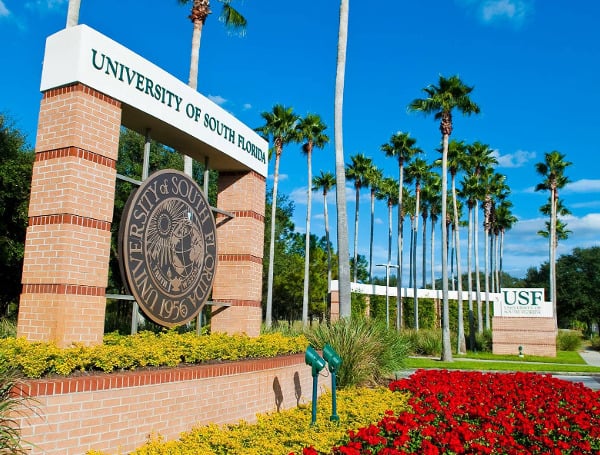TAMPA, Fla. – As the 2024 U.S. presidential election approaches, a new survey by the University of South Florida (USF) offers insights into the issues driving voters and their perceptions of the economy and political landscape.
Conducted from October 22-27 with a sample of 1,500 registered voters, the survey reveals a strong focus on economic concerns, including inflation and personal finances, as well as heightened political stress and growing skepticism toward election fairness.
Inflation and Economic Concerns Dominate Voter Priorities
According to the USF survey, 50% of voters cited inflation as one of the top three issues that will determine their vote, making it the leading concern across demographics. Additionally, 37% cited immigration, although interest in the issue declined from 51% in August, and 28% highlighted abortion, up from 21% during the same period. These findings underscore a shift in voter focus, particularly with abortion and social issues rising in importance.
The economic impact on voters is particularly striking. A significant majority of respondents, regardless of party affiliation, expressed support for policies targeting income inequality and tax reform. A notable 85% supported expanding tax benefits for low- and middle-income households, including 88% of Democrats, 79% of Republicans, and 86% of Independents. Furthermore, 76% supported increasing taxes on the wealthiest individuals, with 92% of Democrats and 61% of Republicans in favor. Similarly, 70% supported higher taxes on corporations, indicating widespread bipartisan support for certain economic reforms.
The survey also revealed broad support for proposals from both leading candidates. While 80% of voters backed former President Trump’s proposal to eliminate taxes on Social Security benefits, a smaller but still significant 43% supported his proposal to increase tariffs on imported goods. Vice President Kamala Harris’s policy to offer a tax credit for first-time homebuyers garnered approval from 67% of voters, with particularly high support from Democrats (84%) and Independents (65%).
Differing Views on Economy Reflect Partisan Divide
While 51% of voters describe the U.S. economy as “somewhat strong,” perceptions vary significantly by party. Seventy-two percent of Democrats believe the economy will benefit from the outcome of this election, compared to 78% of Republicans who see a change as necessary for strengthening the economy. In contrast, only 32% of Independents and 17% of Republicans described the current economy as strong, indicating a more pessimistic view of the nation’s financial health outside of Democratic circles.
For many Americans, economic difficulties are not merely abstract concerns. Over 86% of respondents agreed that inflation has affected their ability to cover everyday expenses. Furthermore, nearly half of the respondents said they had to dip into their personal savings to make ends meet, revealing a pervasive impact of inflation on financial stability.
Rising Political Stress, Sleep Loss, and Family Conflict Over Politics
Amid a high-stakes election season, politics has become a source of chronic stress for two-thirds of respondents, with 20% identifying it as a significant stressor and 46% calling it a minor one. While disruptions like an assassination attempt on Donald Trump and Biden’s withdrawal have raised political tensions, stress levels have remained steady since January, according to USF’s polling data.
Additionally, the survey highlights that political conflicts are increasingly affecting personal relationships. Sixteen percent of respondents reported losing sleep over political concerns, while 27% said they had experienced conflicts with family or friends over differing political views. Among Democrats, 25% said they’ve lost their temper over politics, compared to 22% of Republicans.
Trust Issues: Election Integrity and Belief in Misinformation
The survey reveals that 71% of voters are confident in the integrity of the upcoming election, yet significant skepticism remains among Republican respondents. Notably, 46% of Republican voters expressed low confidence in a fair election, and only 16% are “very confident” their vote will be counted accurately. In comparison, 56% of Democrats are highly confident about election accuracy, indicating a substantial partisan divide in trust toward the electoral process.
The poll also touched on the prevalence of misinformation among voters. While 75% of Democrats and Independents erroneously believed that Trump endorsed the Heritage Foundation’s Project 2025 agenda, 48% of Republicans believed false rumors of Haitian immigrants in Ohio stealing and eating pets. Additionally, 75% of Republicans mistakenly believed FEMA delayed helicopter deployments following Hurricane Helene.
Party Favorability and the Battle for Voter Trust
Voter sentiment toward both major parties underscores shifting political alliances. Democrats experienced a slight increase in favorability, with 44% of respondents expressing a favorable view, up from 41% in August. Meanwhile, the Republican Party has an overall favorability of 36%, with 49% holding an unfavorable view.
In terms of trust in party leadership, 88% of Democrats agreed that their leaders act in the public’s best interests, while only 49% of Republicans expressed the same confidence. Independents displayed a more mixed perspective, with 22% expressing some level of trust in Democratic leaders, compared to 13% for Republican leaders.
Conclusion and Implications for Election Day
As the nation heads into the 2024 general election, economic anxiety, polarization, and a deepening sense of distrust mark the political landscape. The University of South Florida’s final survey in this series highlights that while economic policies and inflation concerns continue to dominate, rising stress and skepticism could play crucial roles in shaping voter turnout and preferences. With support for key policies from both candidates divided, the poll suggests that the outcome of this election may hinge on how well each side addresses these concerns. Both parties now face the challenge of not only winning votes but also bridging growing divides among the electorate.
Please make a small donation to the Tampa Free Press to help sustain independent journalism. Your contribution enables us to continue delivering high-quality, local, and national news coverage.
Android Users: Download our free app to stay up-to-date on the latest news.
Connect with us: Follow the Tampa Free Press on Facebook and Twitter for breaking news and updates.
Sign up: Subscribe to our free newsletter for a curated selection of top stories delivered straight to your inbox.





